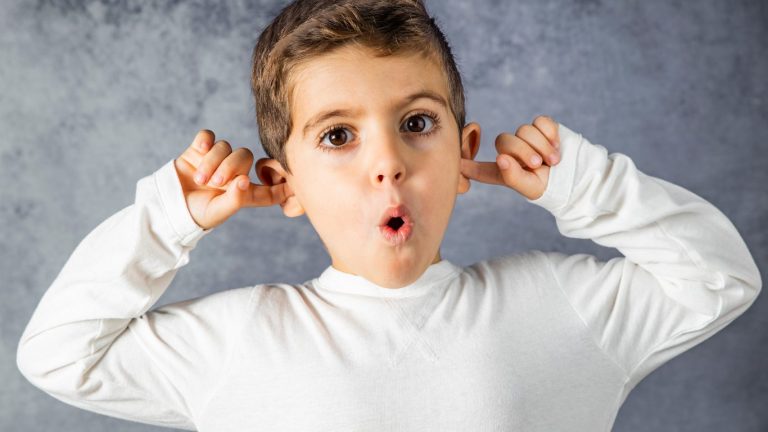For our children, just the same as it is for us, there are times when they have their big difficult feelings that really need loving attention. No matter how committed we are as parents, our children still have their daily ups and downs and sometimes their frustrations mount.
Maintaining your child’s emotional health and wellbeing
Sometimes the stress builds up in the family and everyone is affected.
When feelings build up and weigh a child down, even the simplest requests can feel overwhelming for them. At these times children’s emotional needs become very high, but instead of asking for extra hugs and connection, they’re more likely to become grumpy with all around them.
Much of what is judged to be defiance, misbehaviour, resistance, laziness, spite or selfishness stems from your child having unmet emotional needs and consequently not feeling good in themselves. At such times reasoning, demanding, appealing, threatening or bribing can add to their underlying frustrations and do nothing to address their unmet emotional needs.
Maintaining our child’s emotional health and wellbeing is essential to fostering a culture of harmony and cooperation in the family.
It can be a challenge to make time to give our kids quality time and attention, yet when we remember to prioritise moments and activities that foster connection our, child really thrives.
Children tend to feel loved when we give them positive attention through listening attentively, letting them engage us with their activities and questions, supporting and validating their whole range of feelings, playing together, reflecting that we value their contributions, and generally being warm, caring and affectionate.
Using empathy to deal with your child’s emotions
Children yearn to feel free of the stress of unexpressed emotions.
When difficult feelings are listened to, accepted and understood, they become much less difficult, it allows the child to feel normal and ok about themselves again. The more genuine loving empathy we give our child, the quicker they can bounce back to feeling calm, settled and more secure.
Our children can generally only cope with their feelings to the extent that their parent can cope with them.
“Empathy is a respectful understanding of what others are experiencing. Instead of offering empathy, we often have a strong urge to give advice and to explain our own position of feeling. Empathy, however, calls upon us to empty our mind and listen to others with our whole being.” – Marshall Rosenberg
Many parents worry that giving their grumpy upset child lots of empathy may encourage them to become overly needy.
Sometimes it can seem like this is true because your empathy initially results in an increase in the volume and intensity of your child’s expressions of anger, grief, disappointment or other frustrations. In fact, many studies have shown when parents are empathically responsive to their children, those same children are more likely to develop greater empathy for others and generally have higher emotional intelligence.
When children don’t feel judged for being angry, they’re more likely to cry and seek out a comforting hug rather than hit the baby. Children develop strong emotional resilience if they are consistently cared for when upset.
Yet empathy doesn’t come naturally to all parents. Many of us didn’t receive much of it as children and really have a lot to learn about empathic communication.
Empathy is about being able to put ourselves in the other person’s shoes, which is a challenge for many of us when we can’t really remember very clearly what it felt like to be one, two, three, seven or even twelve. To express empathy to our children, we have to try and imagine what they might be feeling, and show them that we’re trying to imagine just how frustrated they might be feeling.
By offering our guess, they see that we’re seeking to understand them rather than control, moralise or blame them; “you seem very sad that you can’t play with your friend today.”
Don’t hold back, you can’t overdo empathy
Some parents hold back because they worry that they’re being too presumptuous by making a guess at their child’s feelings. What if you get it wrong? What if you add to your child’s confusion?
When you’re sincere, your enquiry into their feelings gives them support and permission to self-enquire on a feeling level.
Sensing your openness, your child will disagree if they need to. In response to “you seem really angry”, when expressed openly with the tone of a wondering as opposed to stated factually “you’re angry!” (which would be presumptuous), your child might reply “No! I’m not angry! I’m just disappointed!” This process helps children develop their feeling vocabulary and children with a greater feeling vocabulary are less likely to become overwhelmed and more likely to find a way of expressing their feelings and needs.
Showing that you’re guessing what your child is feeling tends to speak to their heart, it shows them that you’re actually taking the time to try and understand and relate to their feelings. This creates emotional safety for your child, allowing them to let down their defences, which otherwise tend to show up as a difficulty to listen and generally trust our guidance.
This empathetic approach of having a guess generally opens a child up more than directly asking “tell me what you’re feeling” or “are you angry?”, which tends to appeal more to their mind and calls on their reasoning, which can cause them a lot of frustration when emotions are strong. Young children, especially, may not even know what feeling they’re feeling.
It’s also confusing for children when their parent invites them to share their feelings but hasn’t yet offered any verbal or non-verbal reassurance that their feelings will be treated with respect and sensitivity.
Upset children need us to show understanding and care of their emotions before you can expect them to be reasonable. Ironically they return to reason much faster without the pressure to do so.
And what about tantrums?
What about tantrums I hear you say! When a child has a tantrum, they are offloading huge feelings that their brain is not yet mature enough to cope with without adult help.
The child’s fight/flight response is usually activated. To calm down what they most need is for the adult caring for them to help them feel emotionally safe and cared for.
An adult’s anger or impatience (although understandable) can be enough for them to feel threatened and become even more distressed. Reasoning or ignoring will likely also intensify the child’s stress.
By using empathy, a calming presence and simple words like, “I know you’re upset, I’m listening, I’m staying close to look after you” can help the child feel emotionally held and safe. This allows them to make their way back to balance, after releasing through their cries their backlog of built up stress.
Finally
If you’re concerned about your children’s future in a tough world, the best preparation you can give them is psychological health, which can only occur when they are treated with love, trust and respect. Children who feel self-confident, proud and powerful stand a far better chance of thriving, and even of changing our oppressive society.” – Dr. Aletha Solter.
Meeting our children’s emotional needs is one of the biggest challenges of parenting.
To stay calm and connected when our children experience strong emotions takes a lot of energy. It’s important that parents don’t neglect their own emotional needs too.
Not only is it not selfish to find ways to reduce your stress, access more support, more comfort, more kindness and empathy for your own struggles, these are responsible, proactive choices that bring more balance and support to your whole family system.
Now you know a little more about using empathy to deal with your child’s emotions. For a great overview on parenting see The Big Picture: Guiding your child’s potential or Growing Great Families. For more expert advice, check out our Behaviour section.






Hi. I read your article on having empathy for children. Very helpful and inspiring. If only I can get my husband to read the article and try and follow some of your advise it would be really great. He’s a good father but he has a very bad and violent temper. When he gets angry with the children he yells and throws things (anything within reach!) and this really frightens the kids. Usually I have to do the damage control later. It is challenging but you are so right about the psychological health aspect. They recover and understand better when… Read more »